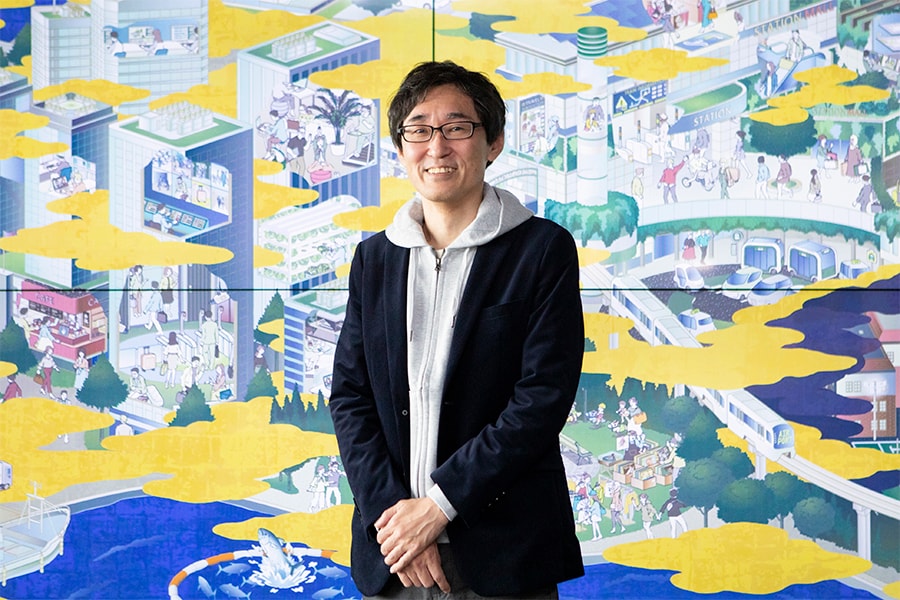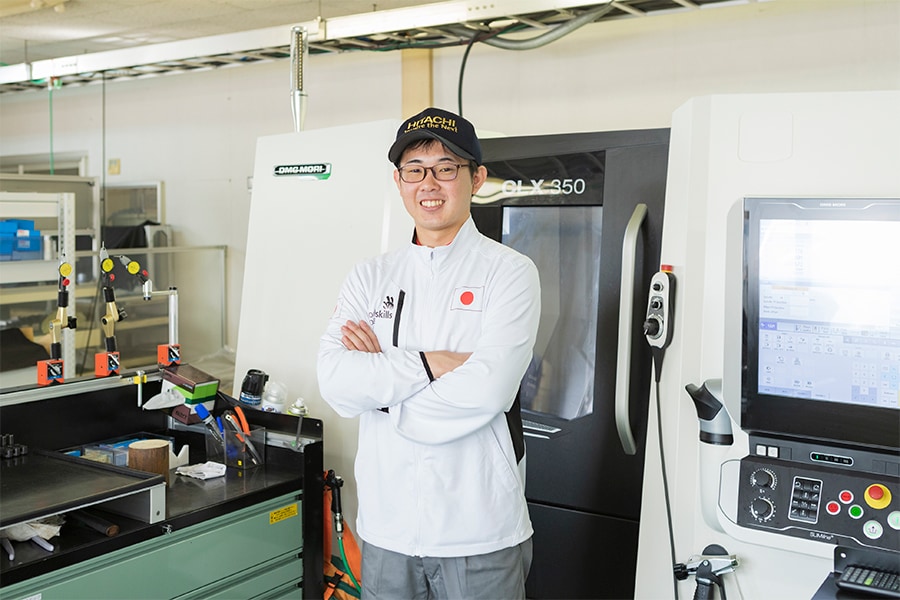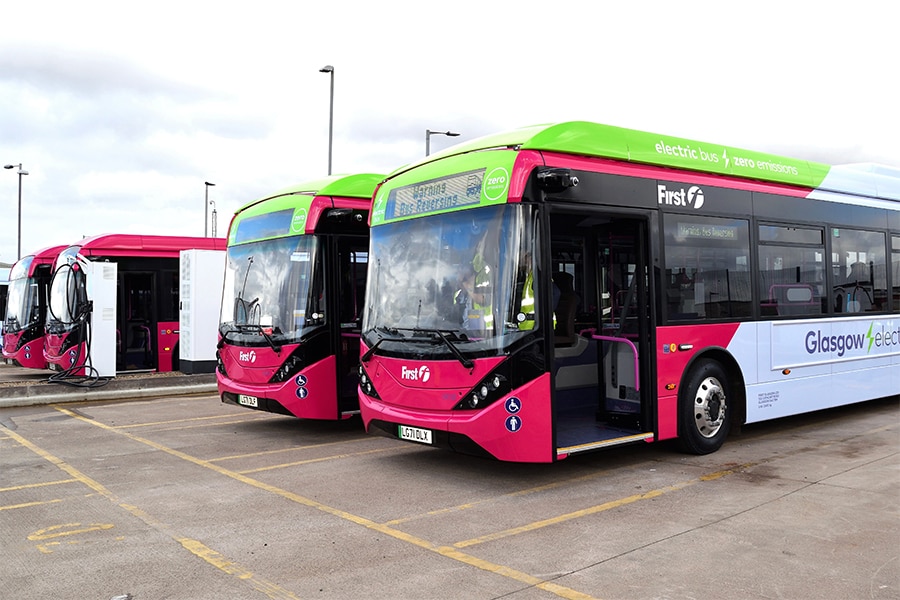The People of Hitachi: Automating EV Battery Production – An Engineer’s Journey to Manufacturing Innovation
Nov. 20, 2023
Yuki Kondo
- Table of Contents
The demand for electric vehicles (EVs), expected to contribute to reduced CO2 emissions, has been on the rise with efforts to realize a sustainable society. Amid such developments, JR Automation, a Hitachi Group Company, launched a specific project. JR Automation is a robotic systems integrator that leverages industrial robotics, artificial intelligence (AI), and other technologies to automate manufacturing and coordination systems.
Marcos Merino, an Application Engineer at JR Automation, led the project. “My job is full of excitement,” describes Marcos, whom we sat with to learn more about his work approach and future aspirations.
Into the World of Manufacturing Through Dad’s Influence
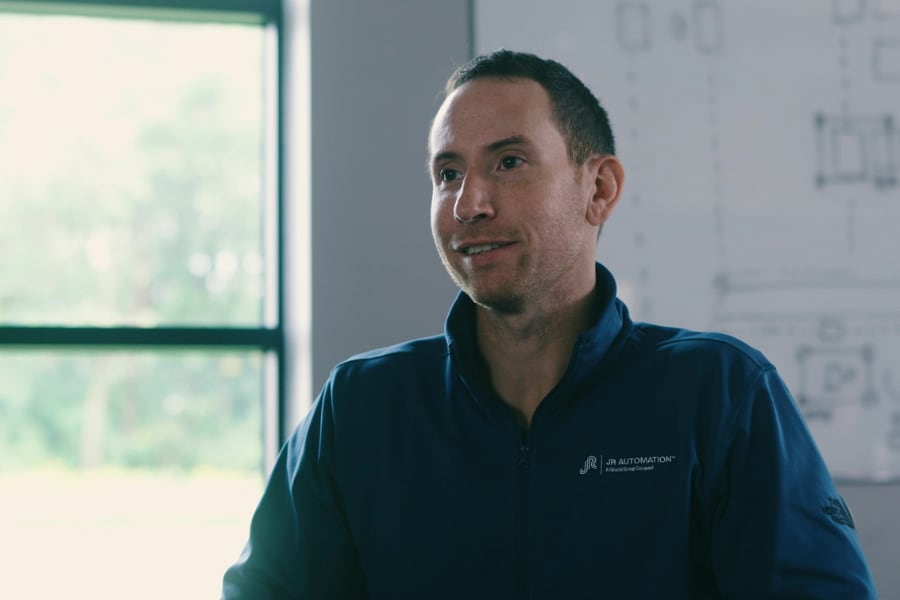
Marcos’s passion for manufacturing began with his father’s love of woodworking.
“I grew up watching my dad always making things from wood and fixing cars. I became fascinated with taking a piece of wood he split and turning it into something new.”
His fascination would later bloom into a strong interest in the mechanics of things, leading him to major in mechanical engineering at university. Upon graduating, Marcos immediately embarked on his career as an engineer.
“The first company I joined produces components for the aerospace industry, and I was mainly in charge of product testing. The next company I joined was a systems integrator, where I designed machinery for producing automotive components.”
After working roughly two and a half years between the two companies, Marcos joined JR Automation. He now has 14 years of experience under his belt.
Mapping Out Complete Manufacturing Systems to Implement
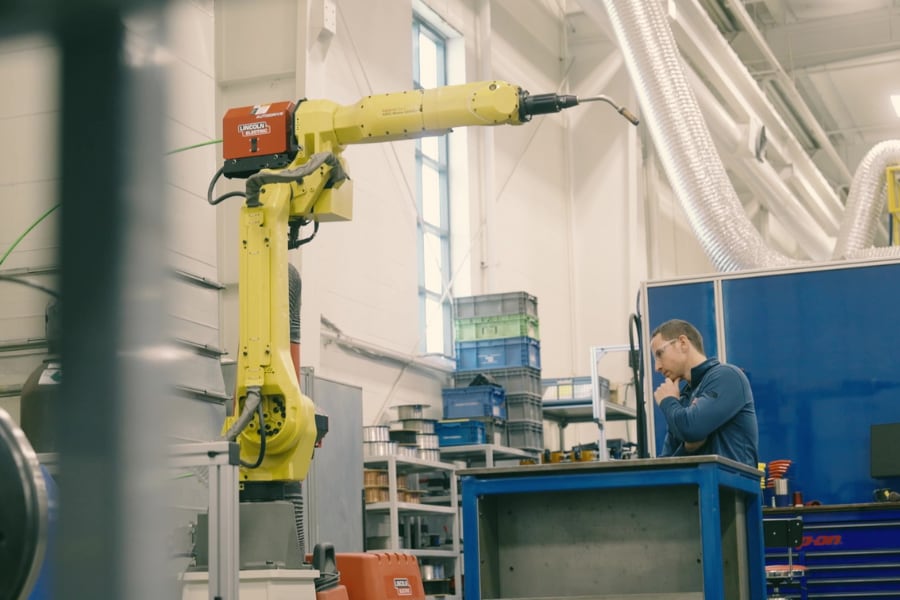
When he joined JR Automation, Marcos was first tasked with partial designs for manufacturing systems before eventually being assigned complete system designs. Later, he was entrusted with overseeing entire projects.
“I engage closely with clients while working to identify issues. I consider the most effective machinery or programs for solving them. My job is to fully map out and implement the manufacturing or logistics system. I propose optimal solutions that address all requirements, ranging from costs and deadlines to environmental impacts.”
Marcos works with a wide range of industries, including aerospace, food, and medicine. An undertaking that he describes as particularly remarkable is a co-creation project he handled with Lion Electric, a major EV manufacturer in Canada.
Co-creation Project Toward Environmental Contributions
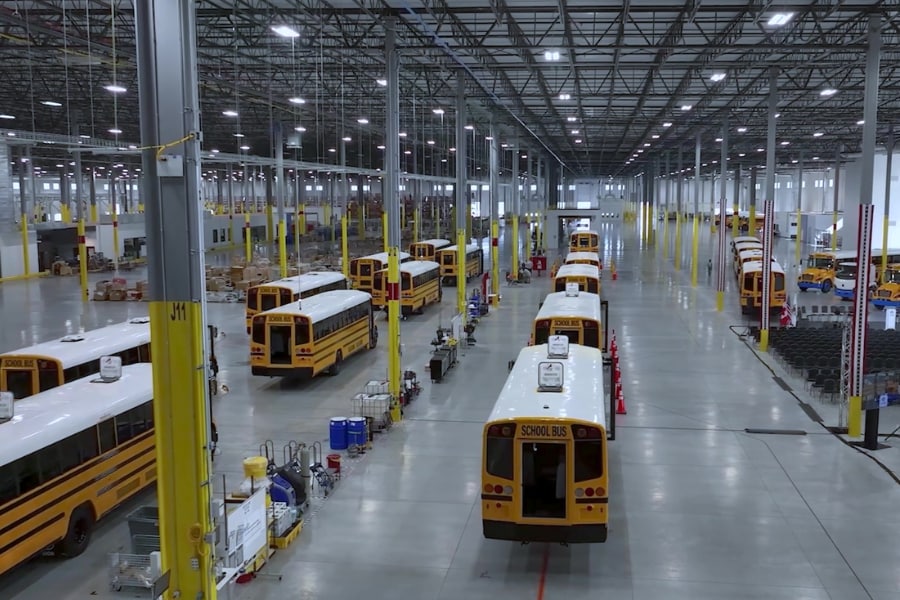
In recent years, EVs have gained attention as an eco-friendly alternative to gasoline-powered vehicles. Since the Canadian province of Quebec has decided on a policy that will ban the sale of new gasoline-powered vehicles by 2035, there is active investment from the national and province levels aiming to promote widespread adoption of EVs.
In the midst of an increasingly pressing need to bolster EV manufacturing capacities, Lion Electric was faced with demands to rapidly mass-produce the heart of EVs: batteries. In 2019, the company turned to JR Automation with a request to launch an EV battery production line. Leading the project was Marcos.
“The batteries were being produced for EV school buses, which would be essential to providing children with transportation for school. Being entrusted with such a major project toward realizing a sustainable society, I was committed to delivering my absolute best.”
Marcos explains that the project team spent many days discussing the most optimal manufacturing system for this job.
“We coordinated robotics and control system suppliers to build an AI-powered system capable of automated battery manufacturing. At the same time, we sought to overhaul the building methods used to manufacture products, reducing the amount of required equipment in order to thoroughly minimize manufacturing impacts on the environment.”
Launching the Production Line in Under One Year
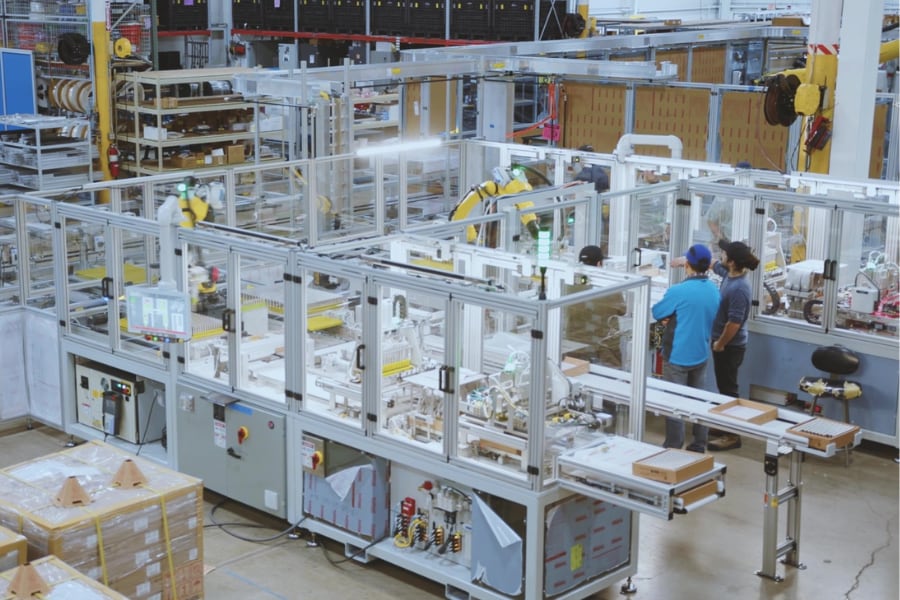
Marcos recalls the unforeseeable difficulties that arose while continuously searching for the optimal system driven by the latest technologies.
“COVID-19 brought unprecedented complications to the project. Project members located in different countries and regions could no longer readily gather at the same place, and moreover, we could no longer procure the required components. I felt my resolve weaken in situations where the future seemed uncertain.”
Nevertheless, Marcos remained diligent and continued with close online communications with his team as they considered all possible options including the idea of using alternative supply routes to help keep the project moving. It was initially expected to take several years. However, they were able to realize a safe, high-efficiency, high-performance, fully operational production line in under one year.
“I feel that this project formed one of the most robust collaborative client partnerships I’ve experienced in my 14-year career. The solidarity achieved between all project members during the new lifestyle brought on by the COVID-19 was likely a major factor. It was an experience that reaffirmed the importance of upholding your company’s values while appreciating other project members and applying flexible thinking toward achieving the same goal.”
The batteries created through this project have been implemented into EV school buses that are now beginning to hit the road and pick up school children.
Dedicated to the Future with Colleagues Now
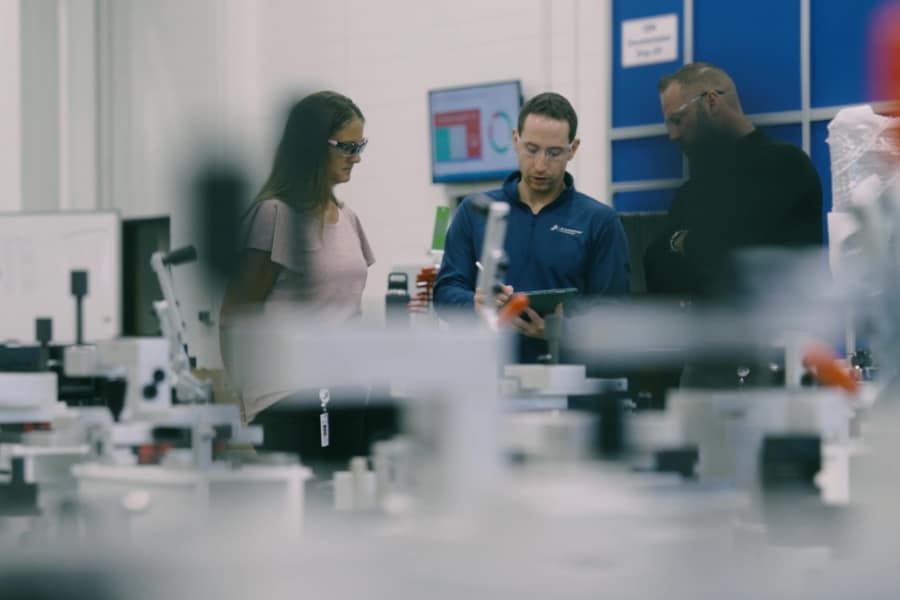
In 2019, JR Automation became a Hitachi Group Company. Marcos explains that Hitachi’s concept of Social Innovation, which is to solve social issues through innovation utilizing digital and green technologies, matches his own philosophies.
“I aim to make positive impacts for both our clients and our society with long-term visions spanning five or ten years. This closely aligns with those of Hitachi. I want my work now to leave a positive impact on the world for the next generation, and I am confident I can achieve this.”
As Marcos shares his experiences, he revels “I just love my job.” What would be the best aspects of the work, according to Marcos?
“The best parts of my job are the never-ending supply of new challenges and the ample opportunity to be creative. I value thinking outside the box and am always careful not to be limited by conventional wisdom. Being able to continue taking on challenges for society with dedicated colleagues is more than I could ever ask for.”
Being a Good Engineer and a Good Father

With three sons at home, Marcos greatly values spending time with his family. Reportedly, his sons are “obsessed” with building robots. A spitting image of their dad when he was a kid.
“Yeah, you could probably say that. But it’s not because I’m encouraging it or anything like that,” says Marcos as he chuckles. “The world of manufacturing is truly amazing, so it’s only natural to be captivated by it.”
Being a good engineer and a good father; such is the goal of Marcos. It then comes as no surprise that having the opportunity to contribute to the co-creation project with Lion Electric was an exceptional joy.
“I’m proud of having been involved in work that aims to reduce environmental impacts and helps make a better society. Nothing would make me happier than if my kids could someday honestly say, ‘Dad’s work is bringing positive changes to the world.’”

